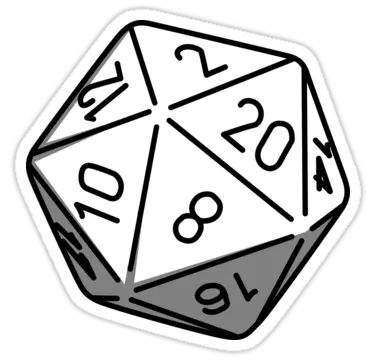Have you really enjoyed reading a work that qualifies and want to recommend it to others? This is the prime spot to help people out with those recommendations.
The way this thread works is that this thread will contain one top level comment for each Bingo square. In order to preserve the organization and readability of this post, please limit recommendations to only replies on those top-level comments. We will be removing comments that don’t follow this rule for for this specific post.
You can scroll through the thread or use the links above if your reader supports comment linking directly.
Reminder, Please DO NOT make comments that are not replies to a prepopulated top-level comment. Your comment will just be removed without any additional info.
Removed by mod
New Release:
New for 2024/2025 (no reprints or new editions). First translations into your language of choice are allowed. HARD MODE: This is the first work you’ve read by this author.
The gathering, by C.J. Tudor
Nuclear war: a scenario, by Annie Jacobsen
Plays With Words:
Written in a stylistically unconventional way. HARD MODE: Fits the definition of Experimental Literature.
- Flowers for Algernon by Daniel Keyes
- Infinite Jest by David Foster Wallace
- Ella Minnow Pea: A Progressively Lipogrammatic Epistolary Fable by Mark Dunn
- Catch-22 by Joseph Heller
- Finnegans Wake by James Joyce
- House of Leaves by Mark Z. Danielewski
- A Clockwork Orange by Anthony Burgess
I asked this question a few months back and had a ton of replies. I’ll leave a link to the thread and highlight my two favourite books so far.
Children of Time - Adrian Tchaikovsky “Evolutionary storytelling”. It tells the story of an entire civilization as it grows and evolves from nothing, whilst simultaneously telling a story that takes place over a much more conventional timescale. Very good book IMO, with two slightly-less-strong sequals
Idaho Winter - Tony Burgess What a bizarre book this was. I don’t know if it’s a good book, but it was weird and kept me entertained so that’s good enough for me.
Spoiler for what made it weird
The author gets dragged into the story at one point and becomes a character in the book by accident
It’s About Time:
The passage or manipulation of time is a major theme or plot driver. HARD MODE: Backward in time, not forward.
Won’t fit the hard mode, but Charles Sheffield’s Tomorrow and Tomorrow was an interesting read. The first third wasn’t really my thing, but after that the book goes way far into the future.
- The Curious Case of Benjamin Button by F. Scott Fitzgerald
- The Time Machine by H.G. Wells
- This Is How You Lose the Time War by Max Gladstone, Amal El-Mohtar
- 11/22/63 by Stephen King
- The Man Who Folded Himself by David Gerrold
It’s a Holiday:
Takes place during a specific holiday, which is significant to the plot. HARD MODE: Not Christmas, a fictional variation of Christmas, or other winter festival.
- Hogfather by Terry Pratchett
- Hallowe’en Party by Agatha Christie
- We Were Liars by E. Lockhart
- V for Vendetta by Alan Moore
- Walpurgisnacht by Gustav Meyrink, Mike Mitchell
- A Night in the Lonesome October by Roger Zelazny
It Takes Two:
Written by two or more authors. HARD MODE: Written by three or more authors.
- This Is How You Lose the Time War by Max Gladstone, Amal El-Mohta
- Good Omens by Terry Pratchett, Neil Gaiman
- Leviathan Wakes by James S.A. Corey (Corey is a pseudonym for the team of Daniel Abraham and Ty Franck)
Debut Work:
An author’s first work. HARD MODE: The author is widely regarded as having a profound impact on the genre/topic.
The Mysterious Affair at Styles by Agatha Christie, with the caveat that her early work is a bit racist. Styles, for example, I recall having an n-word casually dropped into a conversation, along with a couple of antisemitic remarks. If you don’t mind reading around that, however, it’s a nice little Poirot case.
I had a similar experience when I was working through some of the early “The Shadow” pulps and was surprised a couple times at just how blatant the racism was.
- Interview with the Vampire by Anne Rice
- Carrie by Stephen King
- The Hundred Thousand Kingdoms by N.K. Jemisin
- Fear and Loathing in Las Vegas by Hunter S. Thompson
- To Kill a Mockingbird by Harper Lee
- Jonathan Strange & Mr Norrell by Susanna Clarke
- Casino Royale by Ian Fleming
- Neuromancer by William Gibson
Now a Major Motion Picture:
The work has been adapted into a show or single episode, movie, play, audio drama, or other format. HARD MODE: The adaptation is regarded as better than the original work.
The Expanse series by James S A Corey
The Three Body Problem by Cixin Liu
- Shadow and Bone by Leigh Bardugo
- The Hellbound Heart by Clive Barker
- The Leftovers by Tom Perrotta
- Big Fish by Daniel Wallace
- Nothing Lasts Forever by Roderick Thorp
- American Gods by Neil Gaiman
- All Systems Red by Martha Wells
- Storm Front by Jim Butcher
ALT - She Blinded Me With Science
The author has a background and degree in a hard science. HARD MODE: More than one post graduate degree.
- The Postman by David Brin
- Contact by Carl Sagan
- The Boat of a Million Years by Poul Anderson
- Jurassic Park by Michael Crichton
- Dreamsnake by Vonda N. McIntyre
Family Drama:
Family is important, but sometimes it’s also the cause of problems. Family dynamics are fundamental to the narrative. HARD MODE: Involves three or more generations of family members.
Pachinko by Min Jin Lee
- Charlie and the Chocolate Factory by Roald Dahl
- The Sandman Graphic Novels by Neil Gaiman
- The Library at Mount Char by Scott Hawkins
- The Ocean at the End of the Lane by Neil Gaiman
“100 Years of Solitude” Gabriel García Márquez (this works for HARD MODE)
ALT - Same Author, New Work
An author you’ve read before, but a series (or standalone) you haven’t. HARD MODE: Give an author you didn’t like a second chance.
ALT - A Change in Perspective
Written in third-person perspective. HARD MODE: Second-person perspective.
- This Is How You Lose the Time War by Max Gladstone, Amal El-Mohtar
- The Invisible Life of Addie LaRue by V.E. Schwab
- The Night Circus by Erin Morgenstern
- Space Vampire (Choose Your Own Adventure #9) by Edward Packard
Independent Author:
Self-published by the author. Works later published though a conventional publishing house don’t count unless you are reading it before the switch, and it’s republished before April 30th, 2025. HARD MODE: Not published via Amazon Kindle Direct.
- Swordheart by T. Kingfisher
- Dungeon Crawler Carl by Matt Dinniman
- This Quest is Broken! by J.P. Valentine
- Miss Percy’s Pocket Guide to the Care and Feeding of British Dragons by Quenby Olson
- Orconomics by J. Zachary Pike
- Unsouled by Will Wight
What’s Yours Is Mine:
Theft, piracy, fraud, or espionage is a major topic or plot point. HARD MODE: No MacGuffins.
The Recognitions by William Gaddis
Mistborn by Brandon Sanderson
- The Thief by Megan Whalen Turner
- The Lies of Locke Lamora by Scott Lynch
- The Palace Job by Patrick Weekes
- The Redemption of Althalus by Leigh Eddings & David Eddings
- Tinker, Tailor, Soldier, Spy by John le Carré
- Catch Me If You Can: The True Story of a Real Fake by Frank W. Abagnale with Stan Redding
- On Stranger Tides by Tim Powers
Among the Stars:
Features space, astronomy, or stardom. HARD MODE: The title references the theme, too.
Mr Palomar by Italo Calvino.
Also qualifies for hard mode (the character is named after an observatory).
The Calculating Stars by Mary Robinette Kowal
The Three-Body Problem, by Cixin Liu
- Binti by Nnedi Okorafor
- Leviathan Wakes by James S.A. Corey
- 2001: A Space Odyssey by Arthur C. Clarke
- Who Censored Roger Rabbit? by Gary K. Wolf (movie stars count)


